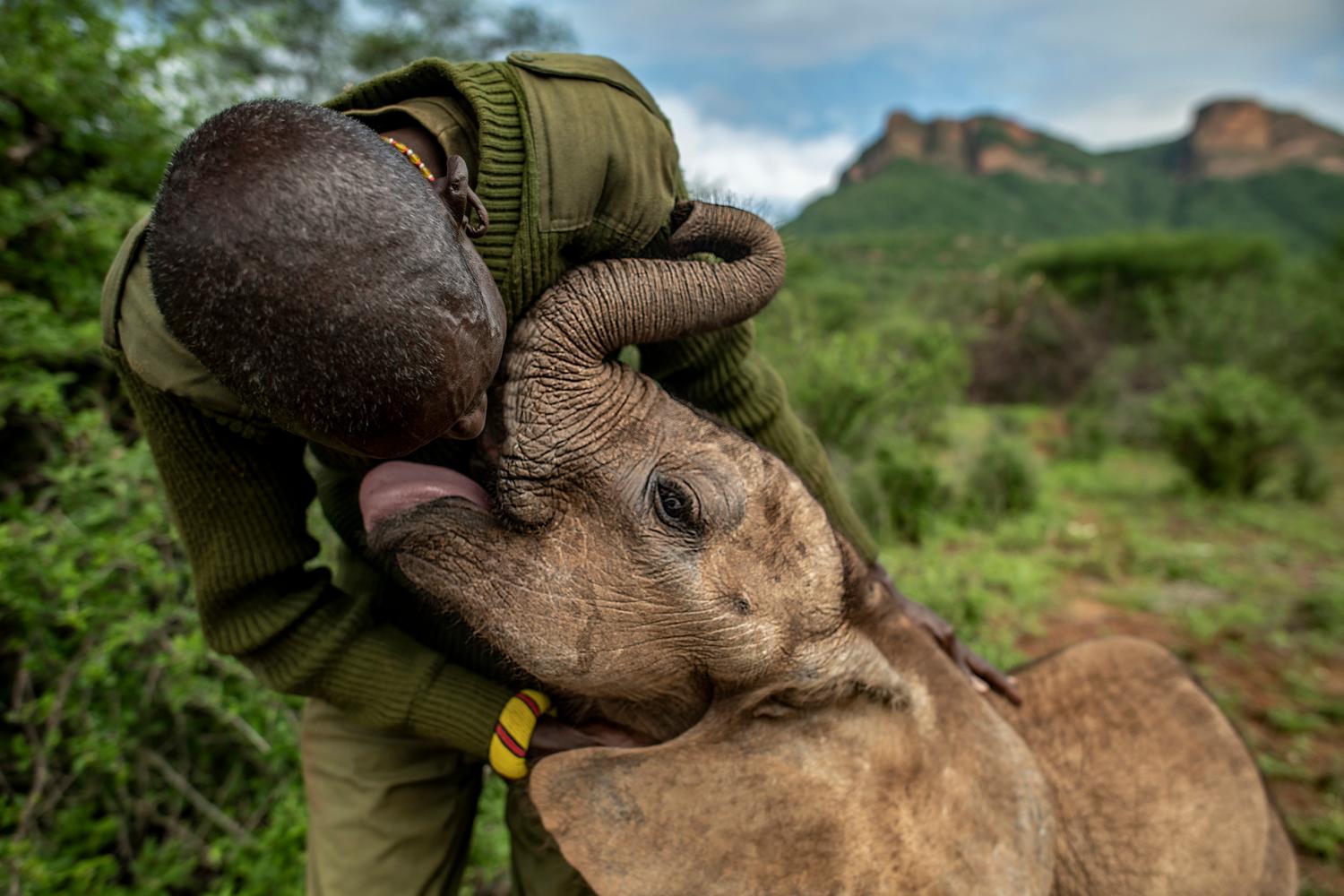
In the heart of northern Kenya stands the mighty Matthews Range, where montane forests of African juniper give way to grassy valleys, roamed by elephants and other iconic species.
Amid this lush landscape lies the Reteti Elephant Sanctuary, a community-managed wildlife refuge that rehabilitates and releases orphaned and abandoned elephant calves back to the wild.

“Irrecoverable carbon” refers to the vast stores of carbon in nature that are vulnerable to release from human activity and, if lost, could not be restored by 2050 — when the world must reach net-zero emissions to avoid the worst impacts of climate change. Learn more about this critical research.
Since its founding in 2016, the sanctuary has recruited elephant keepers directly from the local Samburu community, reinforcing the connection between elephants and the people that live alongside them. At Reteti, keepers first nurture calves with powdered milk, allowing the youngsters to build their strength, then shift to fresh goat's milk, which dramatically improves their survival rate in the wild. And while the keepers work very closely with the calves, the animals are eventually weaned from human contact and released back to their home in the wild.
In June 2024, Ami Vitale traveled to Reteti to document the release of 13 orphaned elephants back into the wild, capturing breathtaking, heartwarming images of the Samburu people's undeniable bond with nature.
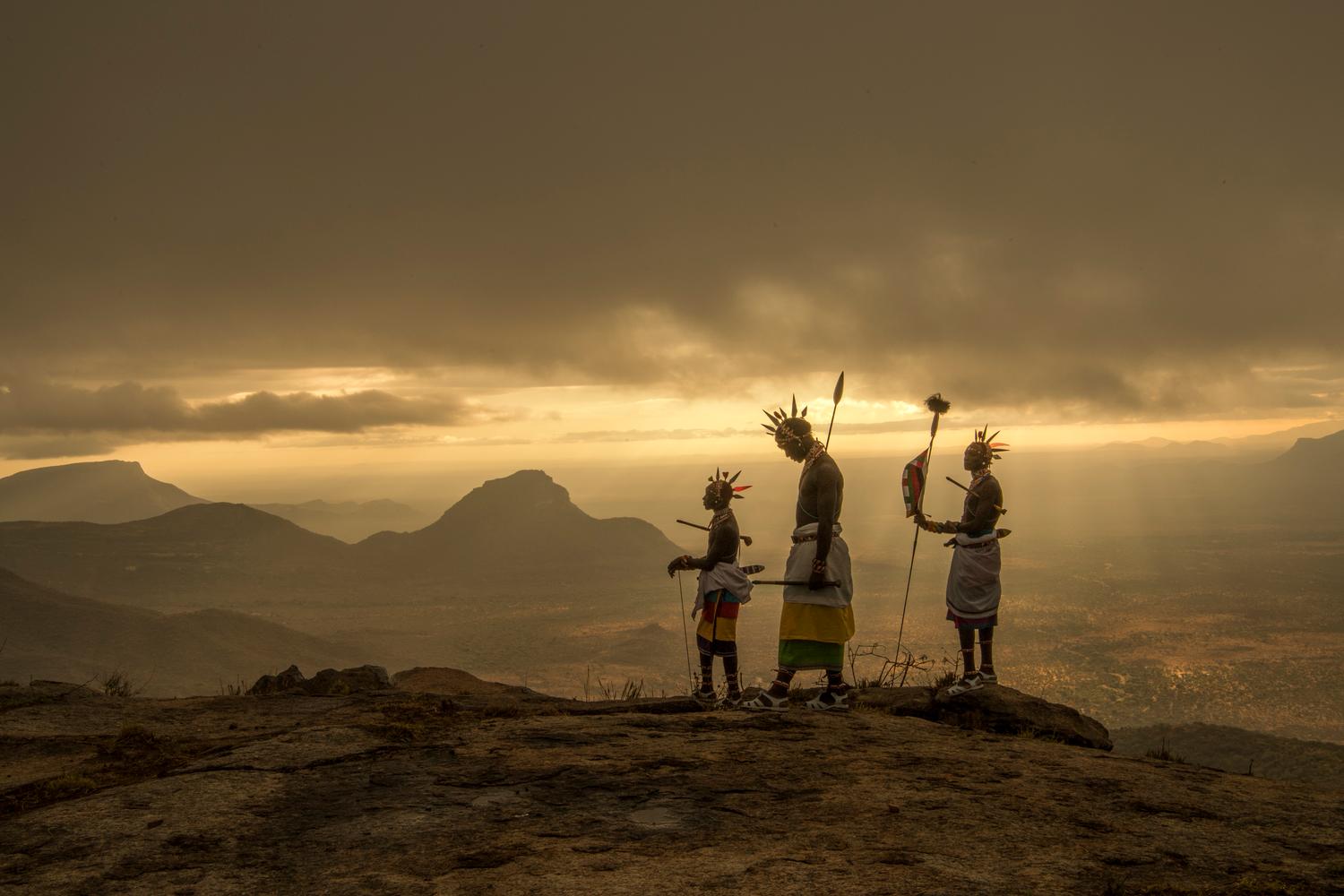
Samburu warriors stand on the edge of the Matthews Range forest in Namunyak Community Conservancy in Northern Kenya. This innovative community founded Reteti Elephant Sanctuary to rehabilitate and re-wild orphaned elephants. The 850,000-acre Namunyak Community Conservancy holds deep cultural significance for the Samburu people, who share strong ties to elephants and the natural world.
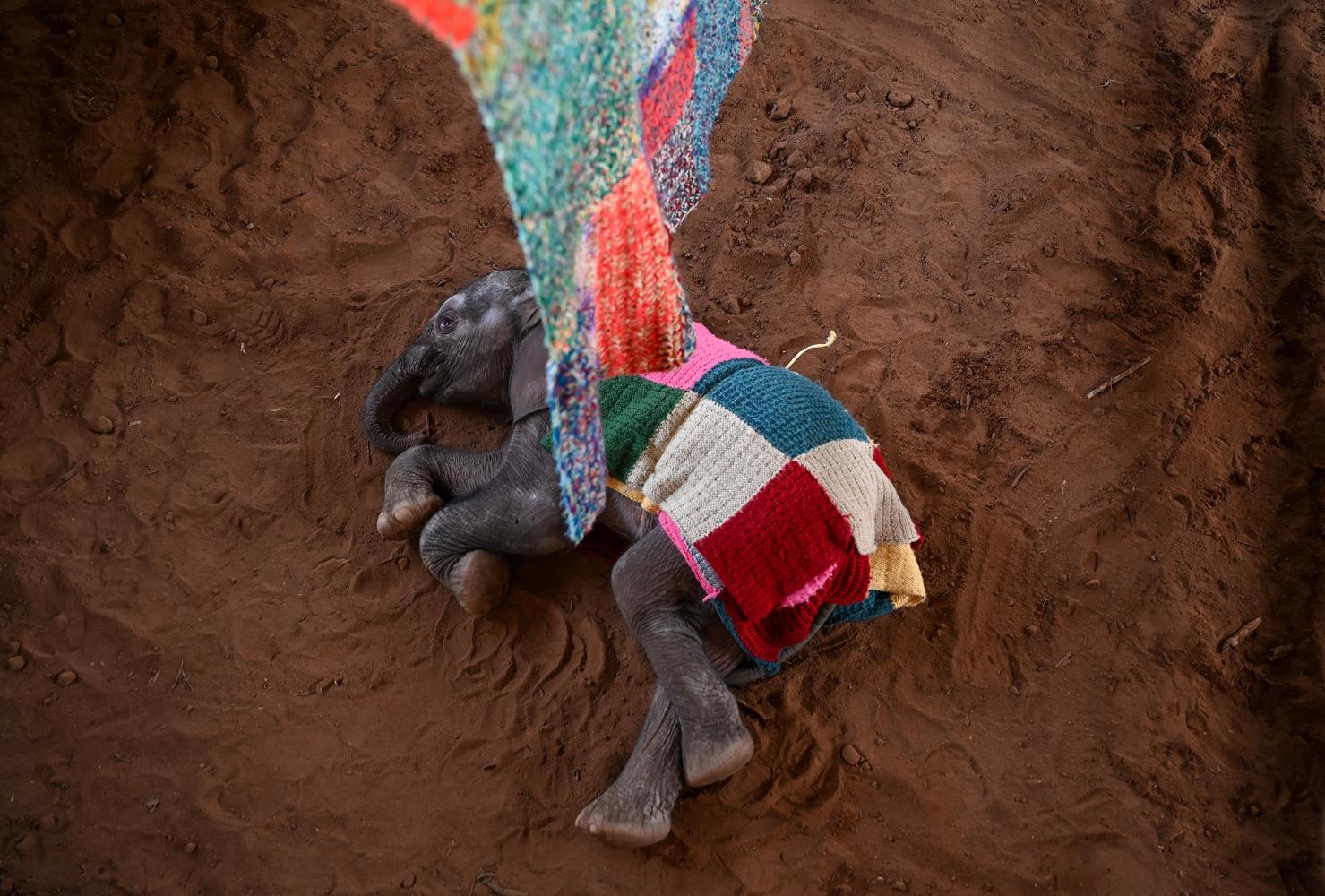
A blanket covers an intravenous catheter delivering fluids to a young elephant. This elephant, estimated to be about a month old, became separated from her herd after she fell into a well and couldn’t get out.
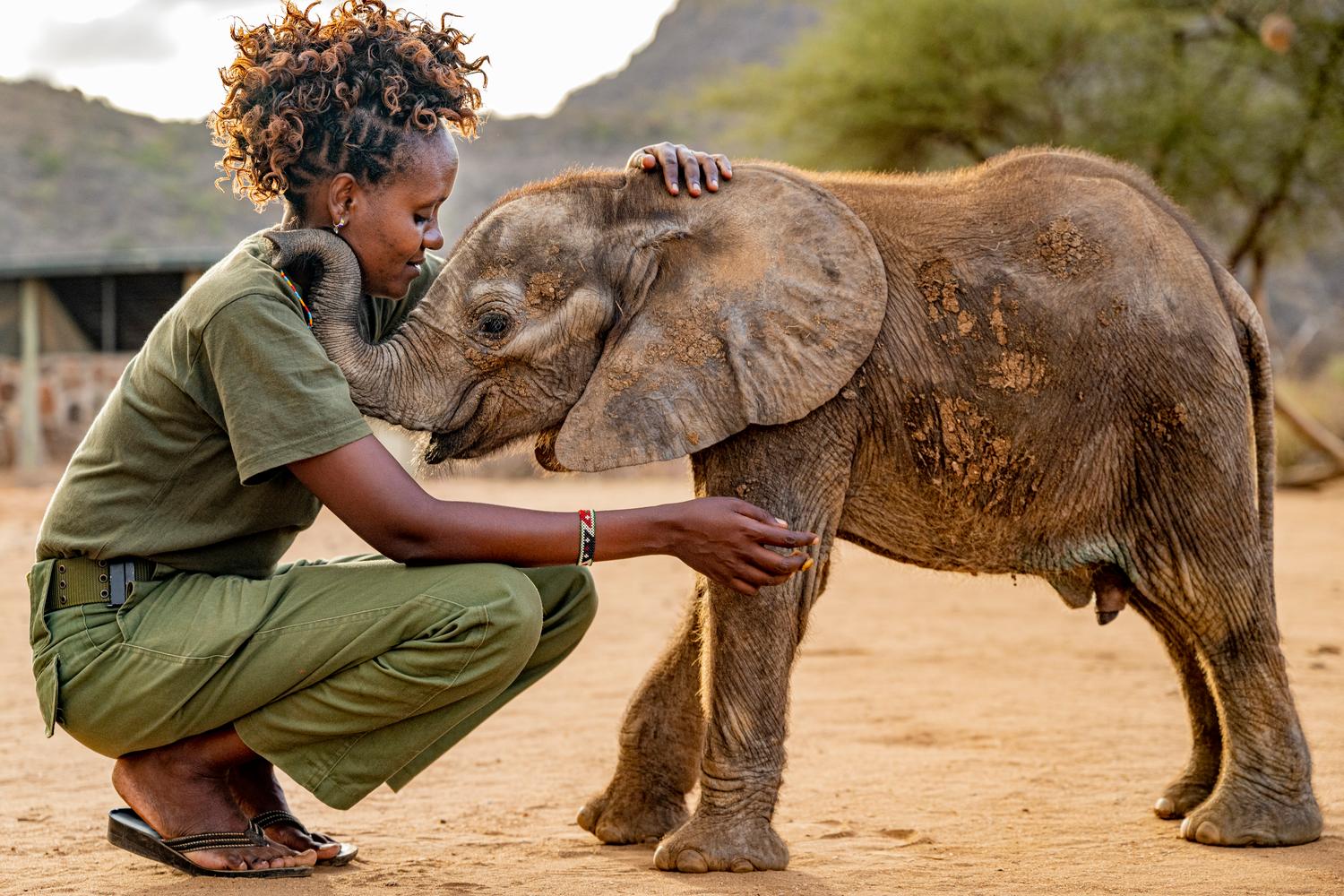
Mary Lengees comforts Lodokejek, an orphaned calf at Reteti Elephant Sanctuary in northern Kenya. Lodokeje was only three weeks old when he spent a grueling night stuck in a well, and also suffered an unimaginable loss when he was separated from his mother. Guarding him all through the night while his tiny body was trapped underground, his mother was frightened off the next morning when the owners of the well arrived with their livestock – and sadly, she never returned. Rescues involving calves and mothers who were separated are especially heart-wrenching because, despite trying everything possible, it’s often impossible to reunite them. In Lodokejek’s case, rangers from Kenya Wildlife Service desperately tried to find a way for him to rejoin his herd, but unfortunately, nothing worked and he needed to be rescued. Today he is thriving under the care of his dedicated keepers.
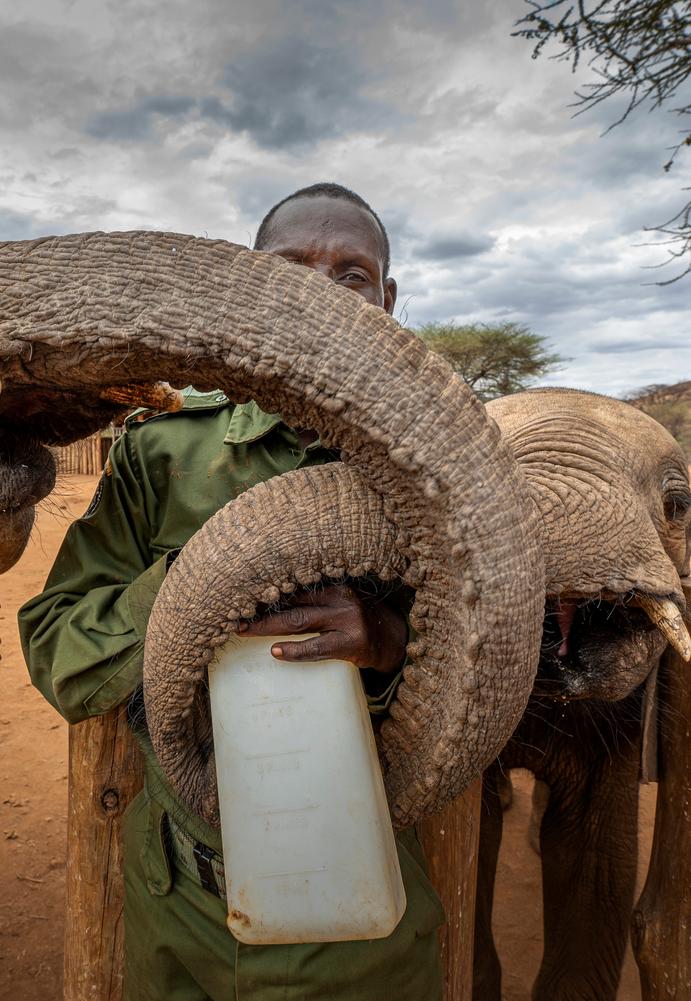
Lemarash gets trapped by elephants trying to get to a milk bottle. One of the silver linings of the pandemic was that the sanctuary could not get the expensive powdered milk for the orphans because of shipping bottlenecks so they had to try experimenting using goat milk. It was a risky endeavor but after a lot of research they tried the new formula, and they went from a 50% survival rate to 100% survival rate of all the newly arrived young orphaned elephants in their most vulnerable moment.

Elephant keeper Lekupinai Tiyapi nurtures Kapai who was suffering from diarrhea and many other difficulties. She had a 50 percent chance of survival according to the veterinarians but Lekupinai and several of the incredible keepers spent long days and nights looking after her until she became strong. Kapai eventually became the matriarch of the orphaned herd and in 2024 was released back to the wild.
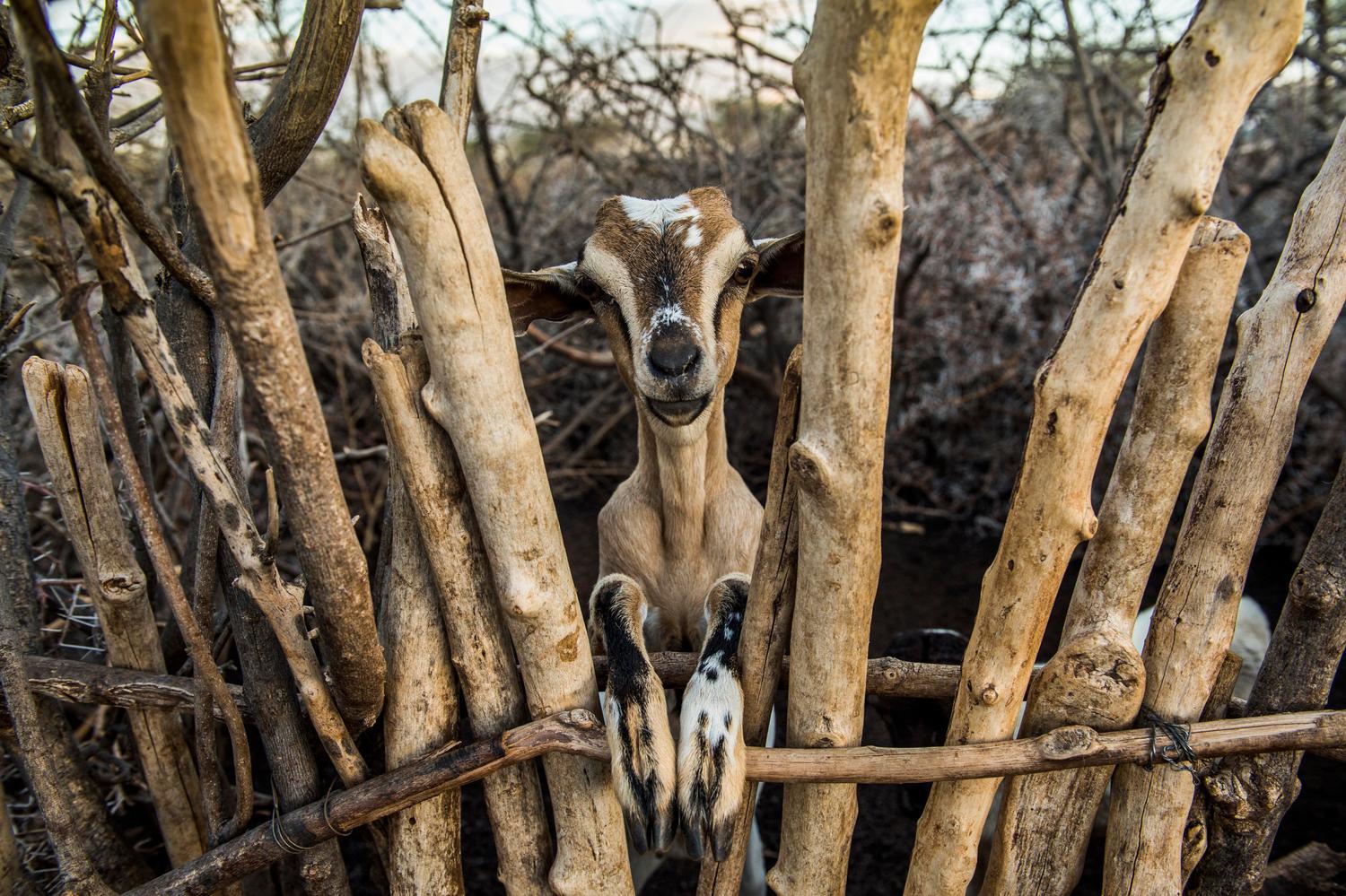
Goats to the rescue! Reteti elephant orphanage had used human baby formula since its establishment in 2016, but costs were high, cans had to be imported, and nutrients weren’t always natural. The pandemic provided the push they needed to find that better option. Sourcing baby formula had become more difficult as lockdowns impeded travel from remote Reteti to cities that stocked the right products, and the collapse of the tourism industry meant that cost efficiency became more important than ever. The goat milk–based formula has proven easier to source and cheaper by half, but it’s also healthy for the calves and allows the orphanage to contribute to the local economy.
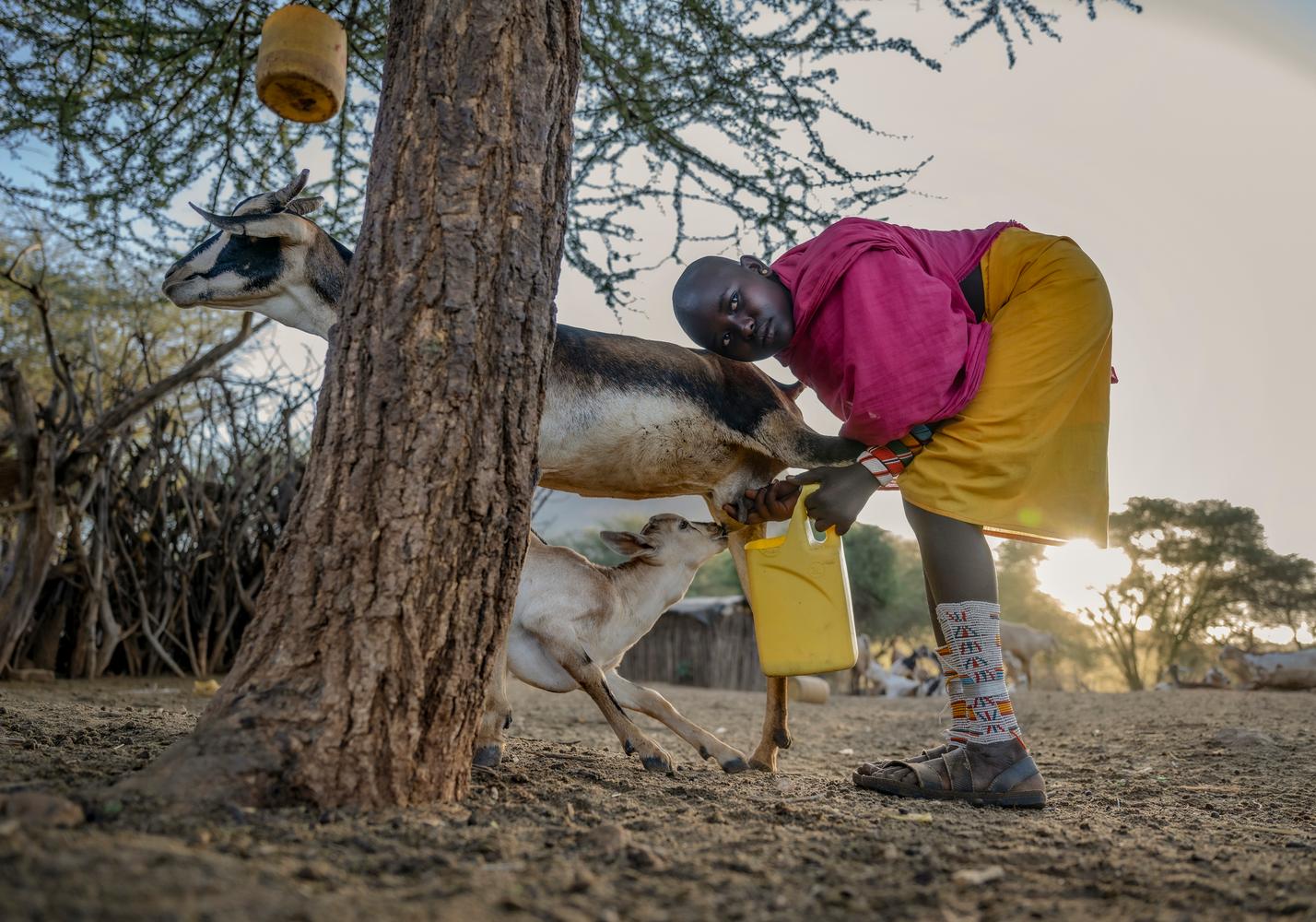
Mpokoti Lenapeer gathers fresh goat milk that will be sent to Reteti. Reteti is the first indigenous-owned and operated elephant sanctuary in Africa and they made the discovery that young orphaned elephants respond better to goat milk rather than powdered milk formula meant for human babies. This “milk to market” program is also changing the lives of over 1200 local women who are receiving an income for the first time in their lives.
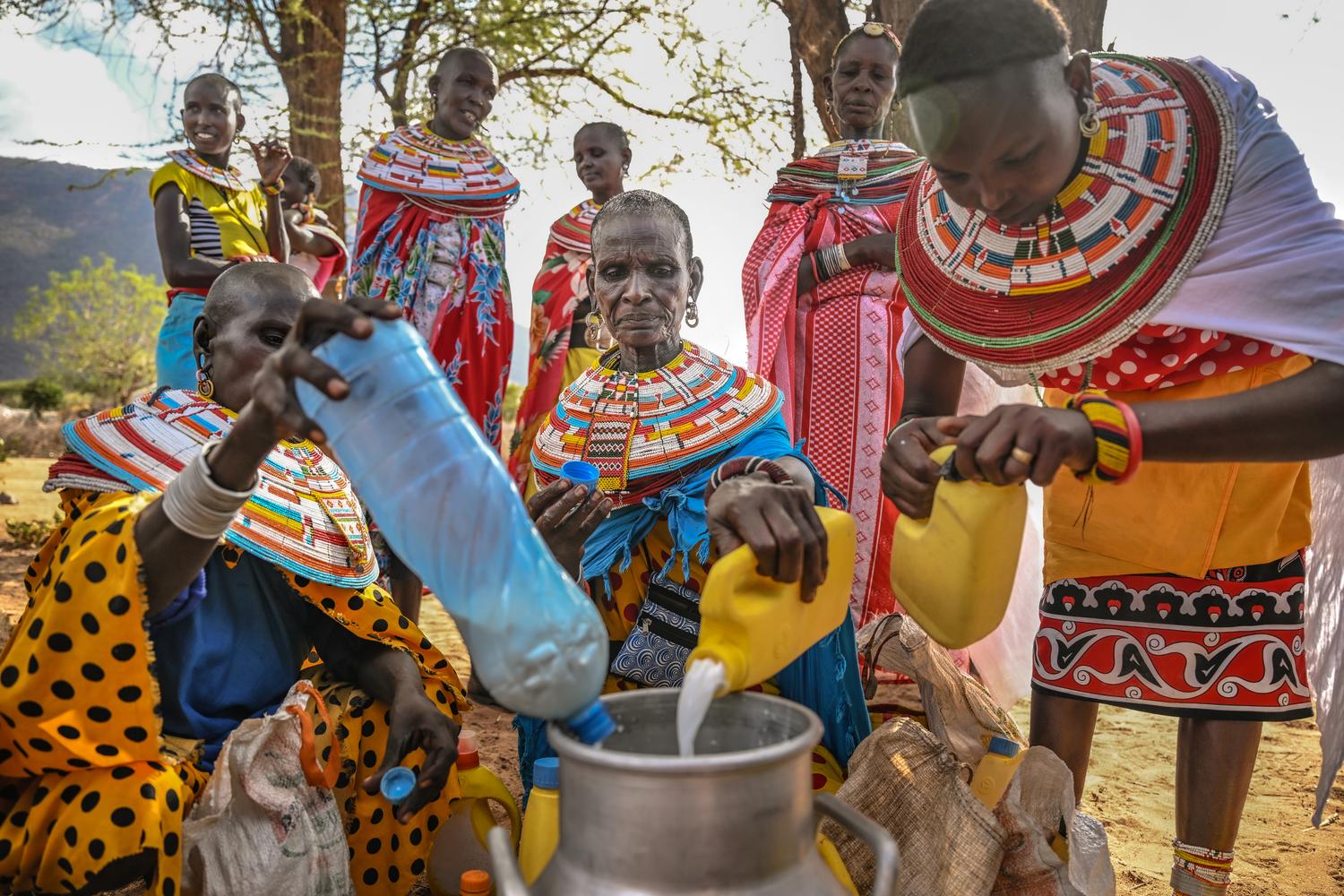
Women gather goat’s milk that will be sold to the elephant sanctuary to help feed the calves.
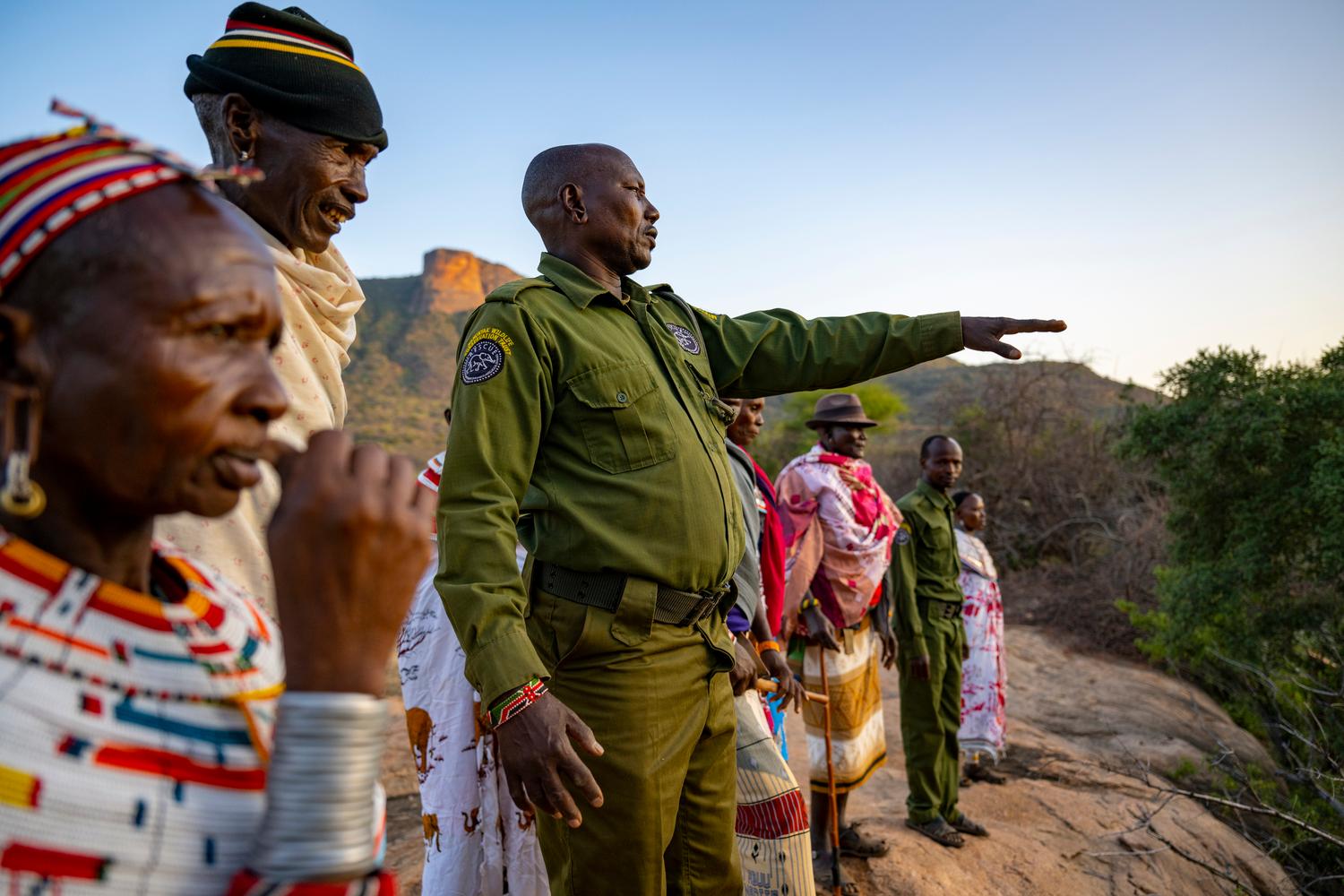
Head elephant keeper Amos Leleruk shows community members where 13 elephants are being released back into the wild. The surrounding communities all have elephant guardians who will be notified if the elephants are near, using GPS collars. These elephants, who arrived mainly due to ongoing drought and a changing climate, have overcome the trauma of losing their families and are finally making their journey back to the wilderness.
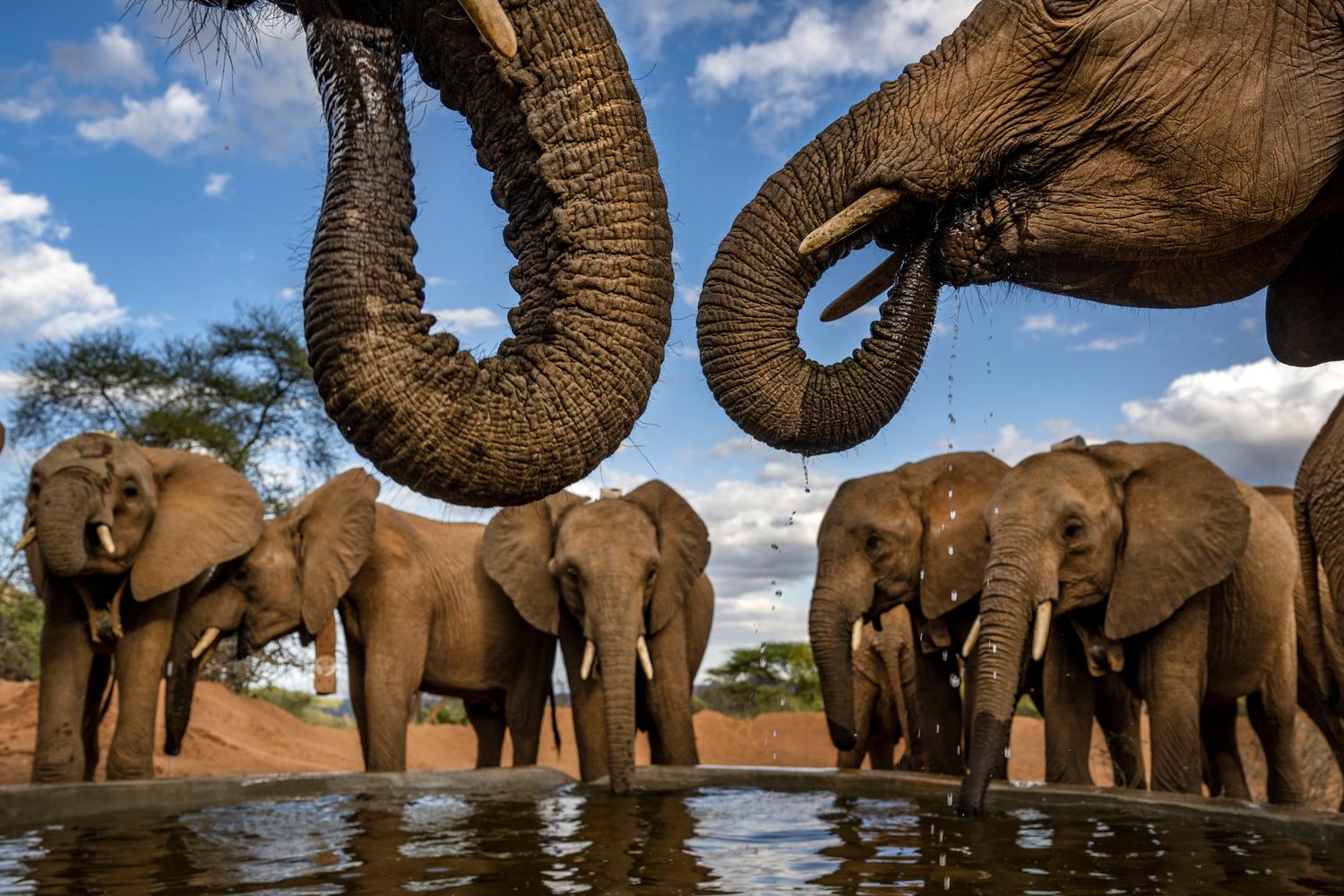
Orphaned elephants take a drink. Instead of using conventional re-wilding methods involving stressful darting and truck transport over rugged terrain, Reteti is pioneering a remarkable alternative. In a historic global first, the sanctuary's keepers led these elephants on foot to their new home. While poaching is no longer the biggest threat to elephants in Kenya, climate change poses a more formidable challenge. However, thanks to community cohesion and involvement in conservation, surrounding communities now recognize the value of having elephants as neighbors. This marks a profound and hopeful shift in perspectives, paving the way for a sustainable future for both people and elephants.
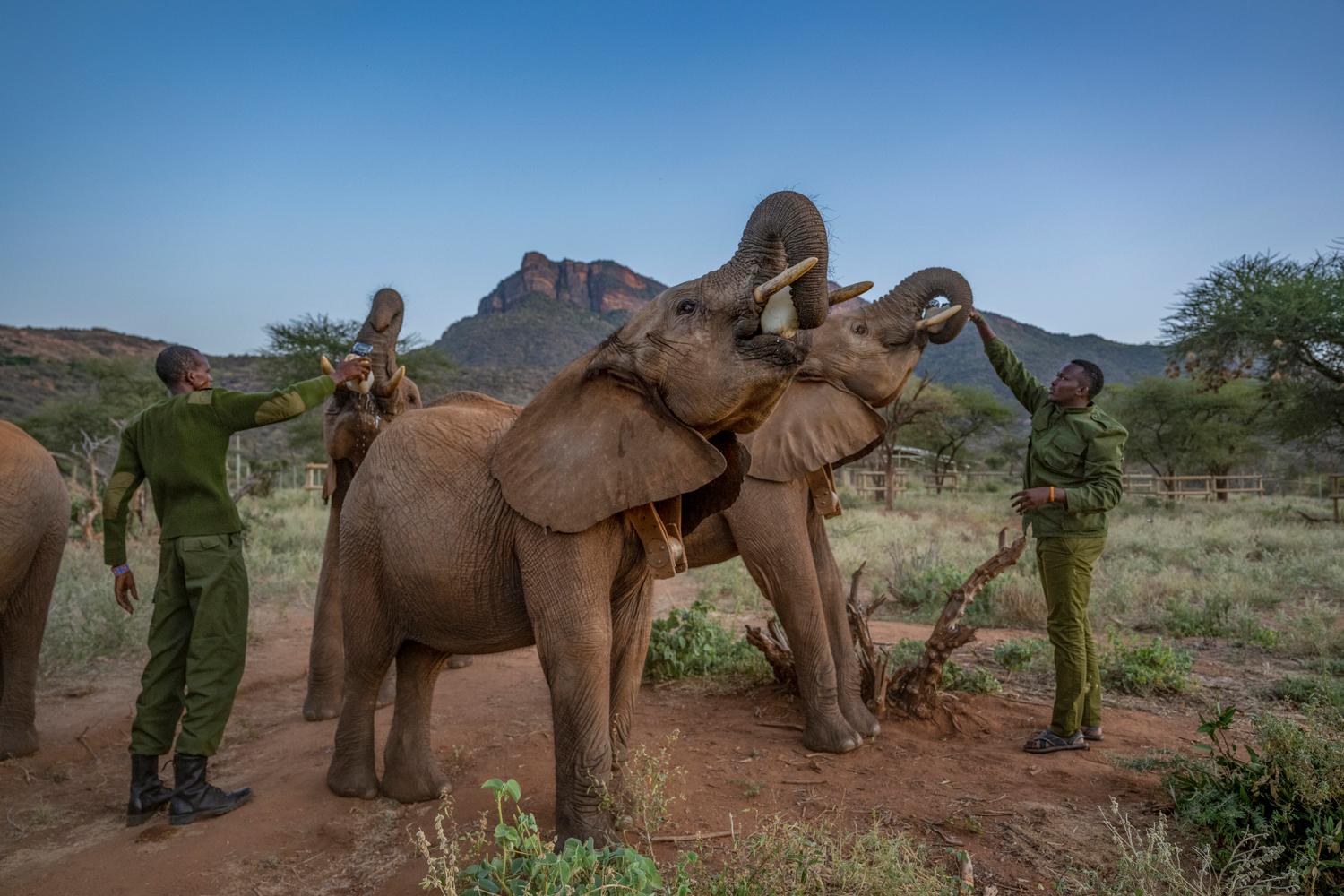
Elephant keeper Lkianai Lemojong, left, and Joseph Lenamarker, right, give the last milk bottles to orphaned elephants before they leave their enclosure at Reteti elephant sanctuary on June 19, 2024.
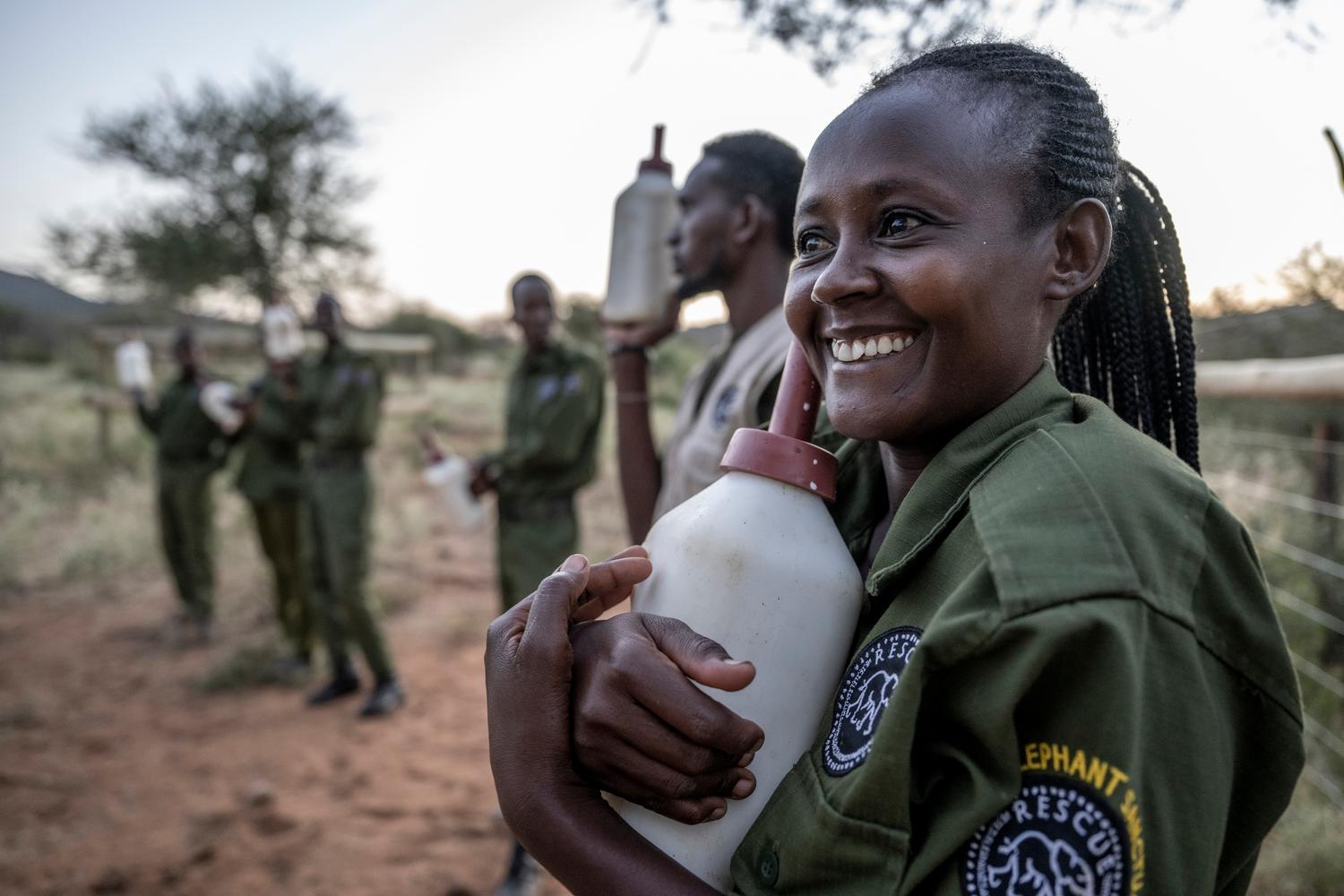
Naomi Leshongoro holds milk as 13 orphaned elephants from Reteti are given their last bottle before being returned to the wild.
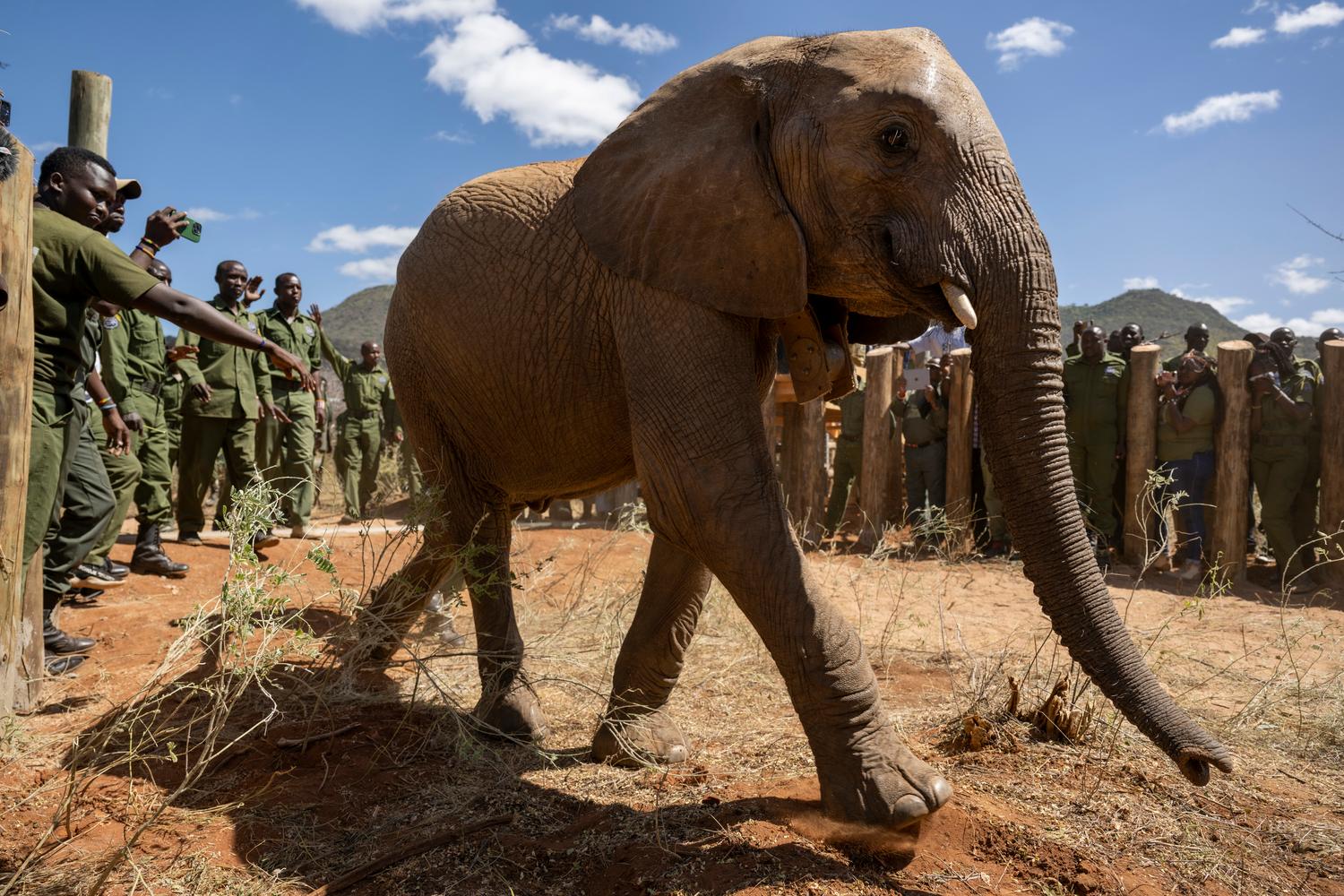
Orphaned Elephants who were rehabilitated after 6 years at Reteti Elephant Sanctuary, in northern Kenya are released into the wild, June 21, 2024.
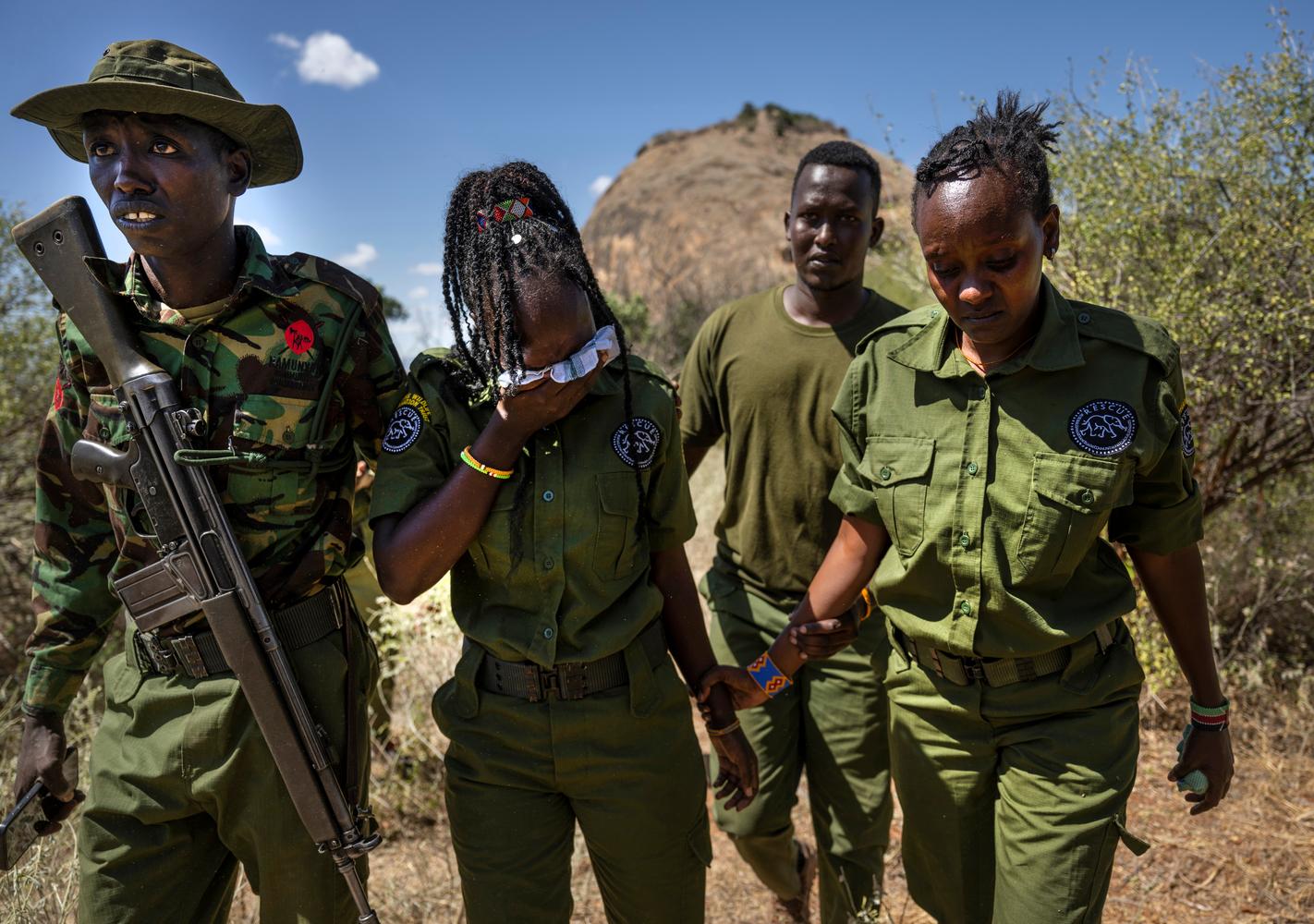
Dorothy Lowakutuk, left, and Mary Lengees, right, hold hands and cry as the orphaned elephants they nurtured for six years are released into the wild. The release ceremony was symbolic and emotional, with Samburu women singing protective songs as the elephants left their home. Villagers gathered, blessing this new chapter through song and prayer. However, the parting was bittersweet for the keepers. As Lemorijo and most others dashed off without a backward glance, Kapai lingered, stretching her trunk towards her caretakers, rumbling softly, and briefly staying back with her human family. Amidst tears, the keepers whispered silent prayers, recognizing this transition as both a farewell and a celebration.
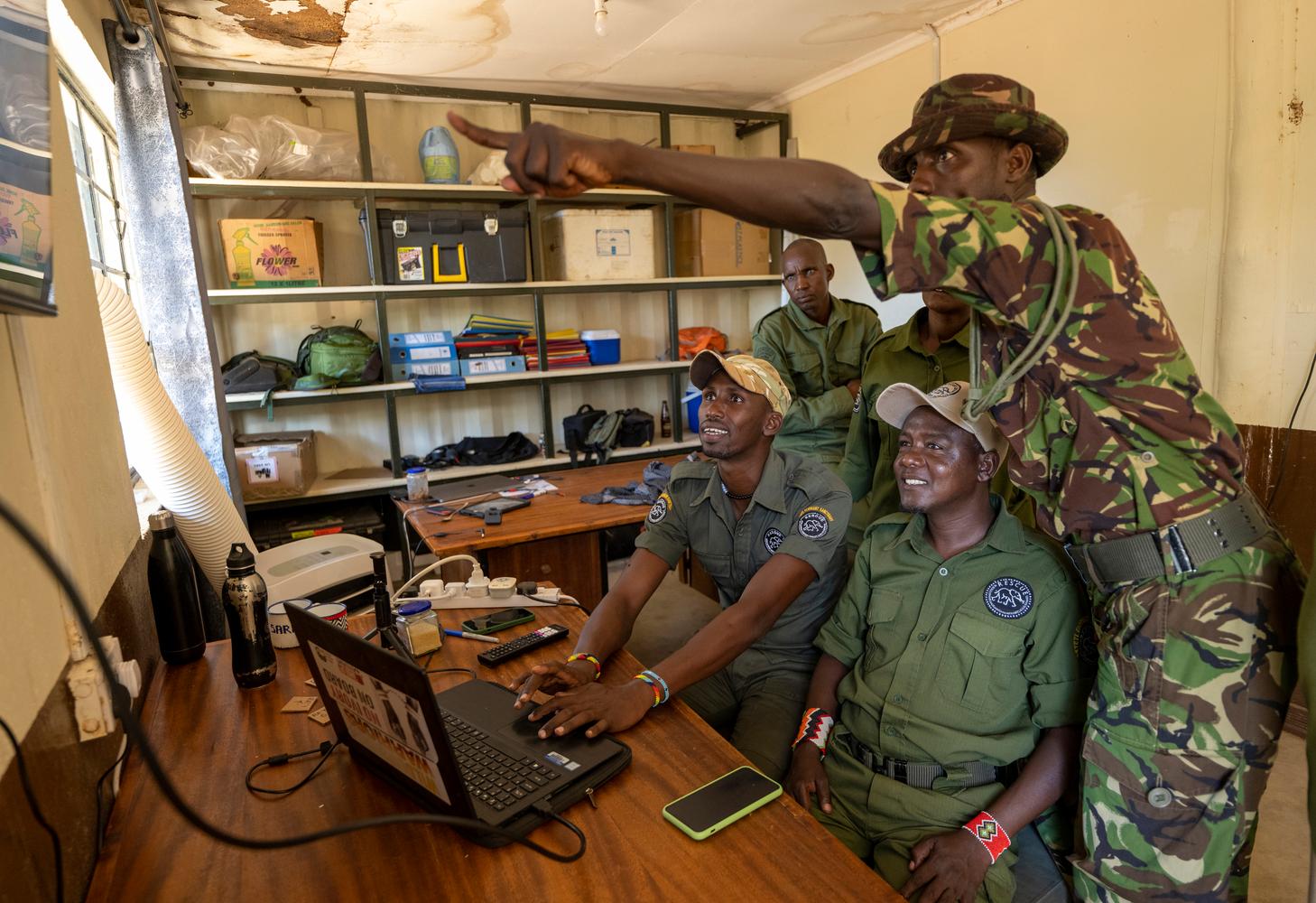
Keepers watch elephants from a monitor. During their first days in the wild, Kapai and her herd roamed approximately 60 miles, culminating in their integration with another wild elephant group. The sight of them moving freely among towering trees, finding ample food and water, painted a hopeful picture of survival and resilience.